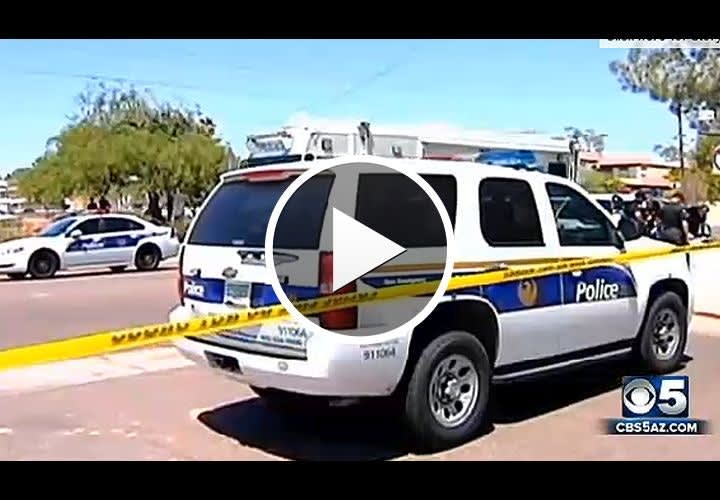Video: Treating PTSD Still Issue for Police
Mental health experts say post-traumatic stress disorder is a very real concern in first responders. Getting officers to talk about how their experiences on the street affect them is a challenge.

Mental health experts say post-traumatic stress disorder is a very real concern in first responders.
"We pay them very little. They work ridiculous hours. And then we're surprised they would come down with PTSD or acute stress symptoms. We should just expect that they would come down with it. Not be surprised when they do," says Dr. Robbie Adler-Tapia, a Tempe-based psychologist who specializes in treating emergency personnel with PTSD.
Discussions of PTSD usually surround military personnel returning from the front lines of war-torn countries. And while the attitudes of some officers are slowly starting to change, many believe police managers and the upper brass are reluctant to acknowledge PTSD as an on-duty injury and address the growing problem in the rank and file, reports KPHO.com.
"Departments need to know that with quick treatment, with treatment options, with therapy, their employees who are having trouble can get back to work very easily," said Nathan Schlitz, a retired Mesa (Ariz.) PD officer.
Getting officers to talk about how their experiences on the street affect them is a challenge, in part because of the attitude that officers get paid to protect and serve and should suck it up and push through anything. There is also the stigma that if officers ask for help they are weak.
"They're exposed to critical incidents every day. And the wear and tear of it just takes its toll on them. And we don't provide services to keep them in shape. You know, psychologically healthy," Adler-Tapia said.
More Patrol

Avon Protection Launches EXOSKIN-S2 High-Performance CBRN Protective Suit
With the commercial availability of Avon Protection’s EXOSKIN-S2, users now have increased options for their protective suit requirements across the spectrum of CBRN threat environments.
Read More →
Versaterm Acquires Aloft to Unlock a New Era of Drones for Public Safety
Versaterm has acquired Aloft, an FAA-approved Unmanned Service Supplier (USS) that specializes in real-time airspace intelligence and flight authorizations.
Read More →
Versaterm Launches Innovation Summit for Public Safety Drone Operations
The two-day DroneSense Innovation Summit by Versaterm will bring together public safety and industry experts to define best practices for scaling drone operations.
Read More →
What Makes a Good LE Boot?
Learn what makes a boot good for police officers as POLICE visits with Kyle Ferdyn, of Garmont Tactical, who explains the features of boots and why each is needed in an LE boot.
Read More →
Folds of Honor Opens Scholarship Application for Children and Spouses of Fallen or Disabled Service Members and First Responders
The application period for the Folds of Honor scholarship program is now open through the end of March. Scholarships support students from early education through postsecondary studies, easing the financial burden for families who have given so much in service to others.
Read More →
Team Wendy Now on GovX: Faster Verification and Discount Access for Eligible Professionals
With GovX verification now integrated directly into the Team Wendy checkout experience, eligible customers can confirm their status in just a few clicks and have the discount applied automatically.
Read More →
5.11 Debuts 2026 Footwear & Apparel at SHOT Show
5.11 showcased new apparel and footwear products during SHOT Show 2026, including new color options for the A/T Boa Lite Mid Boot and the Founder’s Jacket.
Read More →
5.11 Debuts New Load-Bearing Gear at SHOT Show
5.11 launched a variety of new load-bearing gear, ranging from backpacks to chest packs, designed for training, travel, and everyday readiness, this week during SHOT Show 2026.
Read More →
Streamlight Launches the Rechargeable TLR-3X & Other Lights at SHOT Show
Streamlight launched the TLR-3X and TLR-3X USB, two new weapon lights, and an assortment of other new lights during SHOT Show 2026.
Read More →
EOTech & Fast Metal Introduce the EOTech Halen Ballistic Spectacle System
Built on the proven Halen platform, the new EOTech x Fast Metal Halen Ballistic Spectacle System is the only aluminum frame listed on the U.S. Army’s Authorized Protective Eyewear List.
Read More →
